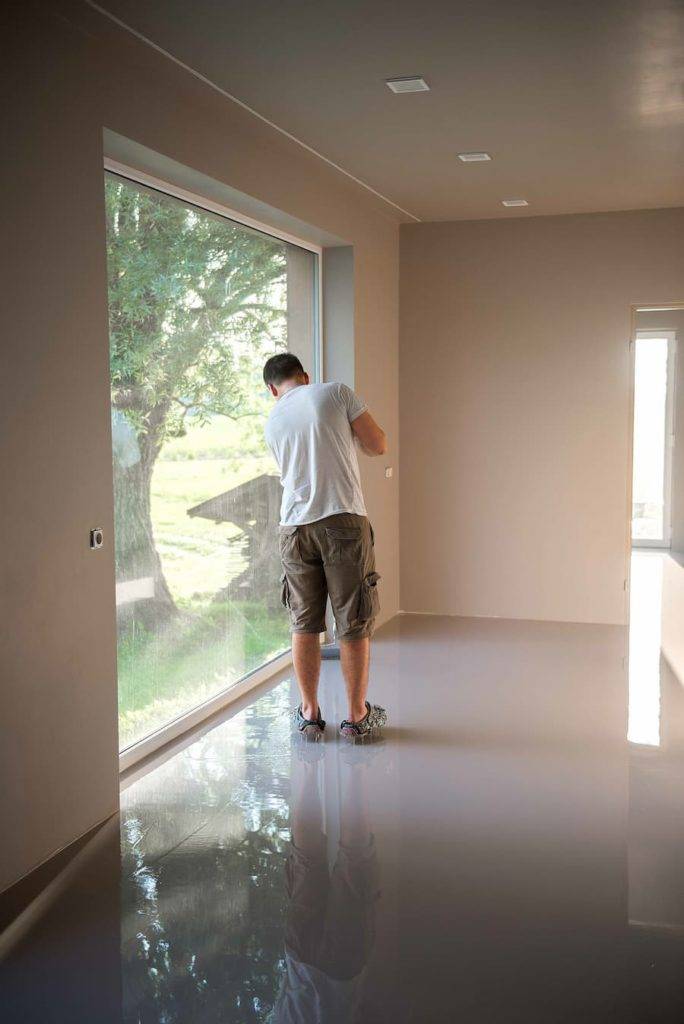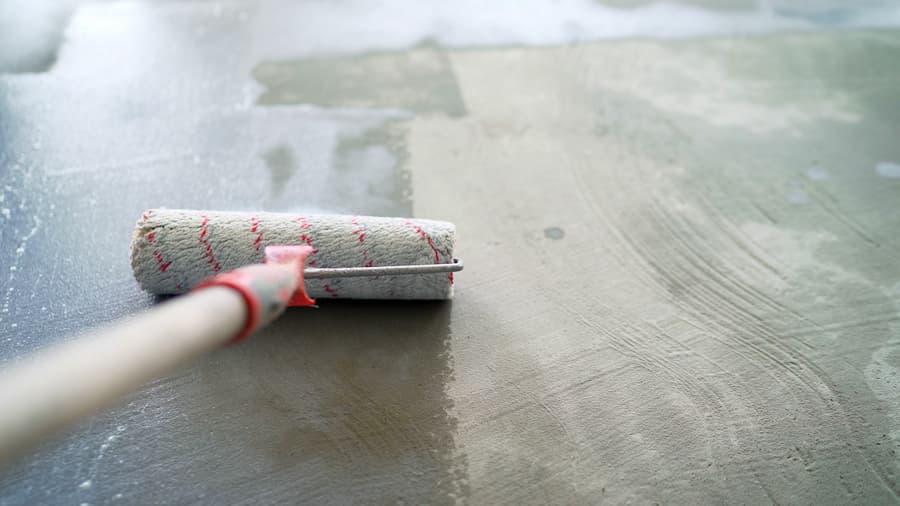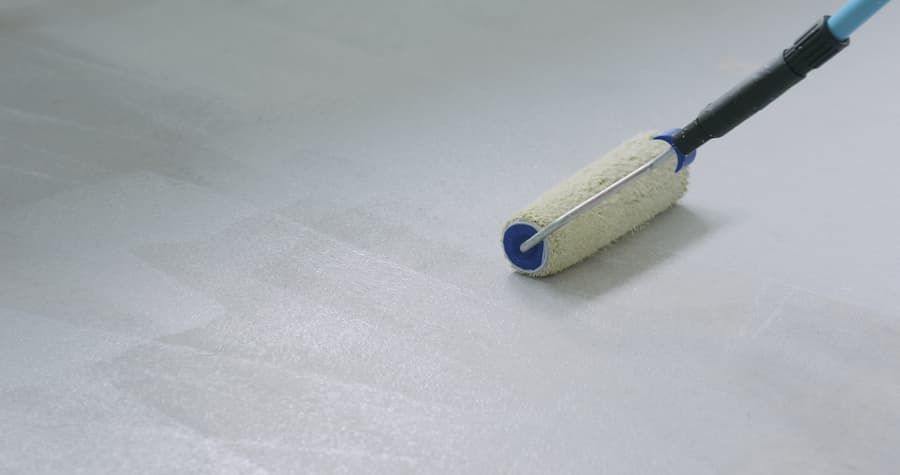Floor paints come in many different forms. Whether you’ve got a whole warehouse to protect or a newly fitted polished concrete garage, you’re going to need the right product. There are different stages to applying this type of paint, and a vast range of possible coatings to use.
We understand this can be a bit overwhelming, so as a result, we’ve put together this guide on all floor paints to assist you in a decision.
When it comes to painting a floor, your first consideration should be preparation. In this instance, preparing the ground for a coat of paint comes in the form of cleaning. You should assess the state of your floor and choose the perfect cleaner to eradicate all dirt and debris.
For example, a solvent degreaser will be ideal if you have any stubborn, greasy stains. Alternatively, if you just have a large amount of dirt, water-based all-purpose cleaning products will do just fine. It’s important to make sure you clean thoroughly in this stage, as any residue, dirt or detritus will jeopardise and ruin the finish of your floor paint.
Once you’ve prepared the floor, you must choose the right time to apply your paint. The environment is something that should be considered. This is because issues such as poor weather and freezing temperature can have an adverse effect on certain products. Some paints won’t set in the cold, and almost all of them don’t react well to water. So if you’re floor is exposed to these elements, we advise waiting for a better day to apply.

Floor paints come with a range of different chemicals and uses. It’s important to use the right one for the right job otherwise you could face expensive replacements and wasteful use of costly products. To help you decide which paint is right for you, we’ve explained below the most common types and what makes them unique.
Epoxy and resin-based floor paints are hard-wearing and set solid. They’re resistant to the elements including heavy traffic and rain. However, they require the use of strong chemicals and solvents. This means they can easily stain unwanted areas and are extremely difficult to remove. So it’s important you’re careful with the application.

Floor sealers come in a few different shapes and sizes but ultimately they are designed for one thing – to seal a floor. Often, they’re transparent and are fantastic for protecting an already good-looking floor. They provide a hard-wearing layer that protects the underside of a floor, whilst allowing you to appreciate the aesthetic. These are often applied over exposed aggregate and polished concrete. This is beneficial in an instance where you’ve paid for a high-quality product but want to protect it without covering it up.
Water-based products are primarily used inside, where traffic and hard use is minimal. They’re useful because they can be easily cleaned for unwanted surfaces and don’t contain any harsh chemicals. However, it’s important to note that they have their limits. It’s not advised to use water-based floor paint in an area which is under constant use such as a warehouse.

Contact Hydron Protective Coatings for a range of high-quality products. We deliver nationwide and offer personal consultations for all of our coatings, so you can be assured you’re choosing the perfect product.
© 2022 - Search4local Ltd. The content of this website is owned by us and our client; copying of any content (including images) without our consent is in breach of our Terms & Conditions. | All rights Reserved